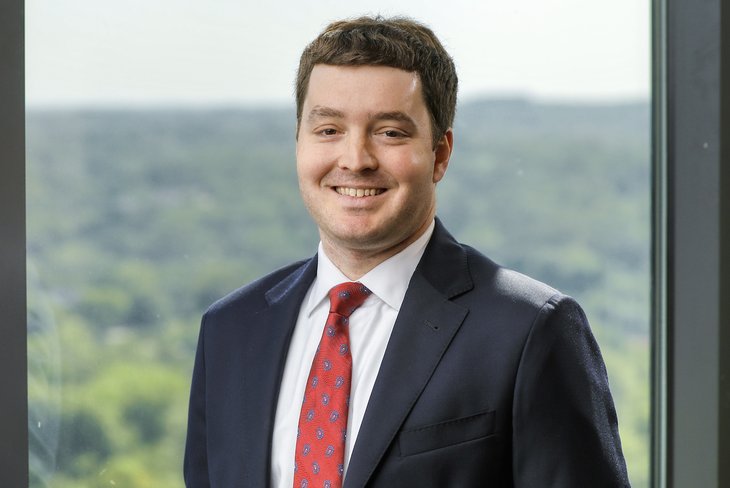Posted in: Lawyers › None

Greenville attorney Michael W. Rabb’s motivation for his recent SC Lawyer article is rooted in recent events.
Specifically, Rabb’s inspiration stems from a recent American Bar Association interpretation of Good Samaritan statutes, which highlights how the COVID-19 pandemic may bring more relevancy to the statutes than ever before.
“I wanted to write about something relevant during this pandemic and this issue seemed especially appropriate after I discovered very little information in South Carolina law interpreting this statute,” said Rabb, an associate in the civil litigation defense firm Gallivan, White & Boyd. “I really enjoyed writing this article as a way to give practitioners the general framework they need to advise clients on this law.”
“Good Samaritan” statutes – which take their name from a Biblical parable – aim to inspire bystanders to provide helpful assistance during emergency situations. With ambiguous language and a lack of history in South Carolina’s courts, however, what does the Palmetto State’s Good Samaritan statute actually mean?
Due to the lack of information pertaining to South Carolina’s Good Samaritan statute, Rabb knew he wanted to unpack the subject, as he finds joy in the way that practicing law enables him to support his surrounding community.
From helping first year law students with legal research and writing as a teaching assistant in law school, to his experience as an appellate law clerk, Rabb values the opportunities that have led him to his role with Gallivan, White & Boyd.
A natural communicator, Rabb’s favorite part of his current practice is the opportunity for direct, one-on-one relationships with the array of entities facing litigation, such as individual clients, small businesses and insurance companies.
“There is no better feeling for me as a lawyer than to be able to comfort a distressed client by explaining that I will be an effective, responsive advocate walking right beside them and navigating them through what can so often be a complicated and frustrating legal process,” Rabb said.
Surprisingly, Rabb was not always called to the opportunity to help others in this way. As the son of an attorney, Rabb was determined to pursue practically any vocation other than his father’s. However, once he was exposed to college-level courses in areas such as business law and constitutional law, Rabb was hooked.
“These courses helped me realize how much I appreciated the law’s ability to help people, and I have tried to focus my legal career on helping others as much as possible,” Rabb said.
Rabb regularly reflects on the advice of mentors and experienced practitioners around him. One piece of guidance stems from Rabb’s family law class at the University of South Carolina School of Law with Judge H. Bruce Williams.
“Judge Williams told us that when we became lawyers, we could get up each day, go to work and work hard, go home, and repeat – or we could use the time and the responsibility we have been given to go beyond just our day-to-day jobs, get involved, and make a true difference in our community,” Rabb said.
While achieving a steady balance between work, life and personal passions may be challenging at times, Rabb calls on the advice of another influential professional in his life for direction.
“At her farewell party with the School of Law’s judicial department, I will always remember Lee Coggiola telling us simply: ‘Find a practice that you love, but don’t take it home with you,’” said Rabb.
Outside of the office, Rabb still makes time for what he loves. From enjoying outdoor exercise with his dog, to spending time with friends and family, Rabb always places emphasis on his connections with others.
“Forming and maintaining relationships is so important to me,” Rabb said. “The relationships in our lives can often provide the proverbial slap in the face or look in the mirror that we all need from time to time to bring ourselves back into balance.”
